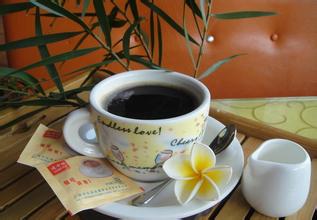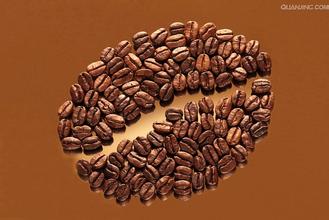Salvador Mercedes Estate Coffee Flavor Description Grind Treatment Method Taste Introduction
The civil war caused chaos and affected economic development, but ironically allowed the ancient coffee to be preserved, and the situation was so chaotic that coffee producers in El Salvador failed to catch up with the renewal of coffee varieties in Central and South America.
El Salvador produces 100% Arabica coffee, of which 68% is Bourbon, Coffea arabica var. Bourbon), 29% Pacas, other varieties including Pacamara,Caturra, etc.
The Pacas variety, first discovered in El Salvador in 1949, is a natural hybrid between bourbon and Catura.
The variety Pacamara, which was artificially bred by pacas and maragogipe (or maragogype), was first bred in 1958 (1954). Pacamara species is a rare artificial breeding of excellent varieties, blue is better than blue, perfectly inheriting the advantages of the mother plant, both the excellent taste of pacas species, raw bean granules also inherited the large size of malagogipe. The Pacamara species is thought to be the result of the pursuit of large Arabica species.
、
El Salvador boutique coffee is concentrated in the volcanic rock producing areas of Santa Ana in the west and Charantanan fruit in the northwest. In recent years, the top 10 cup tests are almost entirely from these two producing areas, with an altitude of about 9-1500 meters, mainly bourbon (68%). Followed by Pacas (29%), mixed-race Pakamara, Dulaai and Kaddura accounted for only 3%.
The coffee harvest lasts from November to March. The fresh fruit of coffee is picked by hand.
On the whole, Salvadoran coffee inherits the mild quality of Sino-American coffee, which is soft, slightly sour and has beautiful sweetness. At the same time, it also has its own characteristics: the aromatic taste is slightly sour and very soft; it is pure and has no miscellaneous flavor, and the taste balance is excellent; the smooth feeling like cream chocolate is impressive; the dense feeling of coffee in the mouth makes the coffee have a deep taste, and the long aftertaste Pacamara varieties are artificially cultivated varieties of Pacas and Maragogipe. It was first cultivated by researchers in El Salvador in 1958. Pacamara is an excellent variety under rare artificial breeding, which is better than blue, and perfectly inherits the advantages of the mother plant. Both the excellent taste of Pacas and the large size of Maragogipe are inherited by raw bean granules. The bean body is at least 70% and 80% of that of elephant beans, with more than 17 orders and more than 100% and more than 18 eyes. Average bean length 1.03 cm (general bean about 0.8-0.85 cm) average bean width 0.71 cm (general bean about 0.6-0.65), thickness 0.37 cm, bean shape plump and round. The biggest feature of this variety is that it is sour, lively and tricky, sometimes biscuit, sometimes fruity, thick and greasy. The quality is the best from El Salvador and Guatemala.

Important Notice :
前街咖啡 FrontStreet Coffee has moved to new addredd:
FrontStreet Coffee Address: 315,Donghua East Road,GuangZhou
Tel:020 38364473
- Prev

Moderate acidity Coffee Flavor description method of Congo Manor in Nicaragua
Nicaragua has a low flavor, chocolate, caramel sweetness, obvious almond flavor and bright sour taste, which is different from the rising tone of bright fruit acid in Central America. The coffee planting ecology of Nicaragua has a unique environment, which is full of fertile volcanic soil, coupled with shade planting methods, has established a good growth physique, so that Nicaraguan beans are not only rich in mellow, but also
- Next

Introduction to the treatment methods of Grinding degree for Flavor description of Coffee Variety in Tianyi Manor, Nicaragua
Lake Nicaragua is the largest lake in Central America, located in southwestern Nicaragua. The local Indians call it Lake Corsi Walka, which means freshwater sea. Lake Nicaragua is 160km long, with an average width of 60km and an area of 8264 square kilometers. Tens of thousands of years ago, Lake Nicaragua was an bay of the Pacific Ocean, cut off from the sea by volcanic eruptions. With the passing of the sun and moon, the water of the lake gradually
Related
- Does Rose Summer choose Blue, Green or Red? Detailed explanation of Rose Summer Coffee plots and Classification in Panamanian Jade Manor
- What is the difference between the origin, producing area, processing plant, cooperative and manor of coffee beans?
- How fine does the espresso powder fit? how to grind the espresso?
- Sca coffee roasting degree color card coffee roasting degree 8 roasting color values what do you mean?
- The practice of lattes: how to make lattes at home
- Introduction to Indonesian Fine Coffee beans-- Java Coffee producing area of Indonesian Arabica Coffee
- How much will the flavor of light and medium roasted rose summer be expressed? What baking level is rose summer suitable for?
- Introduction to the characteristics of washing, sun-drying or wet-planing coffee commonly used in Mantenin, Indonesia
- Price characteristics of Arabica Coffee Bean Starbucks introduction to Manning Coffee Bean Taste producing area Variety Manor
- What is the authentic Yega flavor? What are the flavor characteristics of the really excellent Yejasuffi coffee beans?

